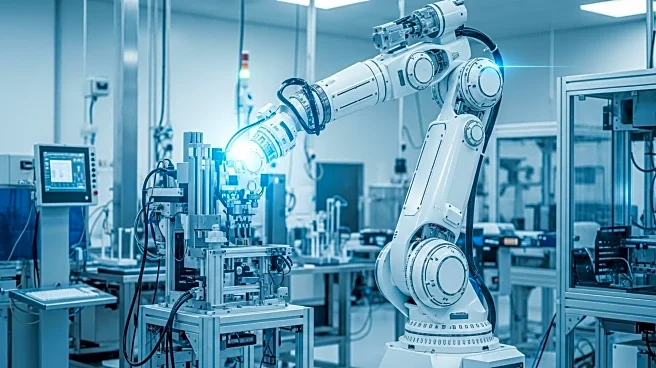What is the story about?
What's Happening?
Drug manufacturers are increasingly integrating artificial intelligence (AI) into their production processes to improve efficiency and quality. Companies like Biogen and Sanofi are focusing on end-to-end process optimization, aiming for fully automated operations. Sanofi is leveraging AI to predict and mitigate potential supply chain shortages, working towards a real-time adaptive system. The industry is shifting from isolated AI applications to comprehensive oversight of production processes, enhancing quality management and compliance. AI is also being used to boost sustainability efforts and integrate with robotic hardware for more efficient manufacturing.
Why It's Important?
The adoption of AI in drug manufacturing signifies a major shift towards digital transformation in the industry. By optimizing production processes and supply chains, companies can reduce costs, improve product quality, and enhance operational efficiency. This technological advancement could lead to more reliable drug availability and potentially lower prices for consumers. Additionally, the integration of AI with robotics could revolutionize manufacturing practices, reducing human error and increasing scalability. However, companies must also navigate risks such as system failures and cybersecurity threats.
What's Next?
As AI becomes more integral to manufacturing operations, companies are likely to continue expanding its use across various aspects of production. This includes further integration with robotic systems and enhancing real-time monitoring capabilities. Manufacturers may also focus on developing AI-driven solutions to address sustainability challenges, aligning with broader industry goals. Stakeholders, including investors and regulatory bodies, will be closely monitoring these developments to assess their impact on the industry.
Beyond the Headlines
The integration of AI in drug manufacturing raises ethical and legal considerations, particularly regarding data privacy and security. As companies collect and analyze vast amounts of data, ensuring compliance with regulations and protecting sensitive information will be crucial. Additionally, the shift towards automation may impact employment in the sector, necessitating workforce retraining and adaptation to new technologies.
















